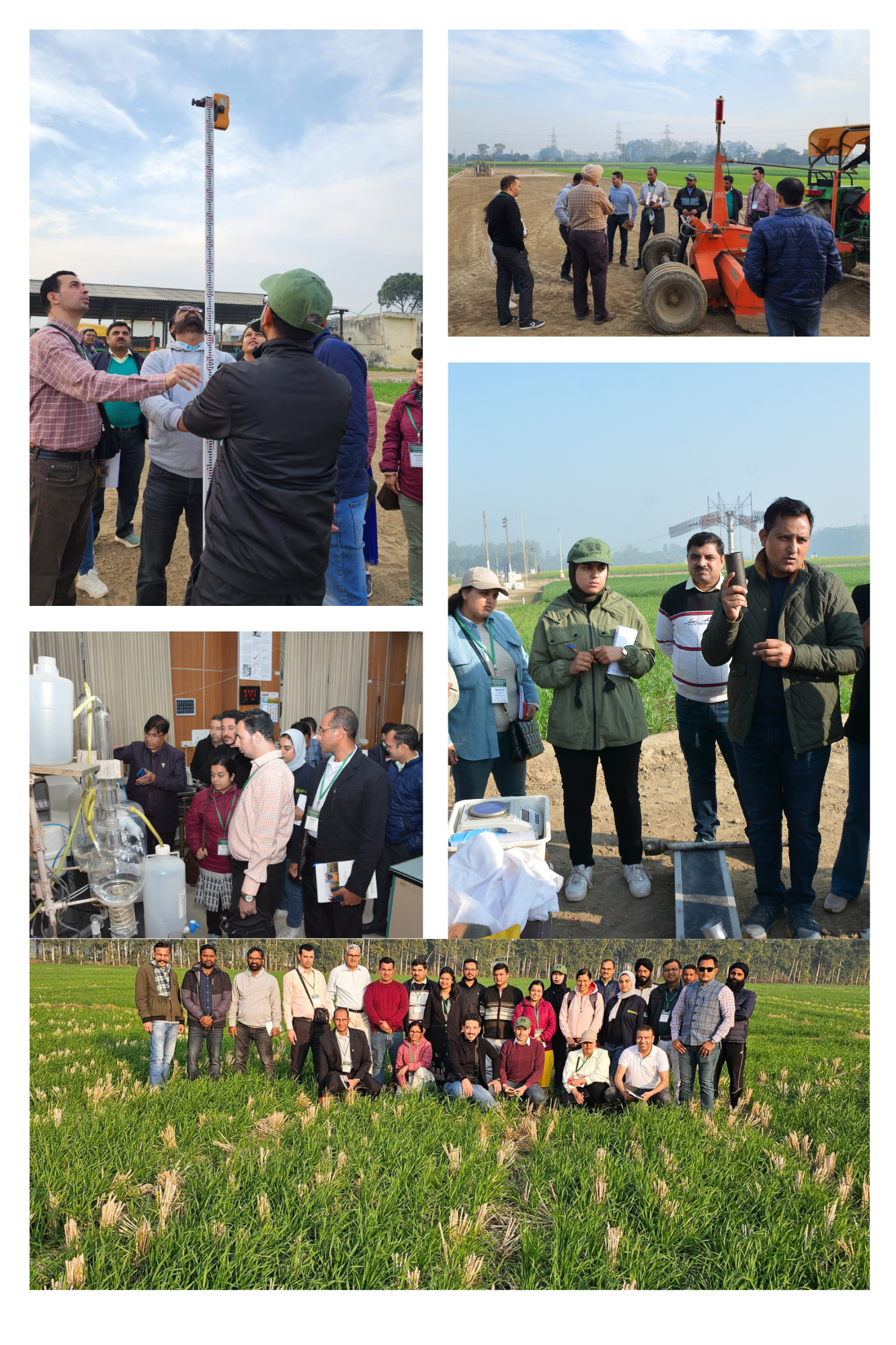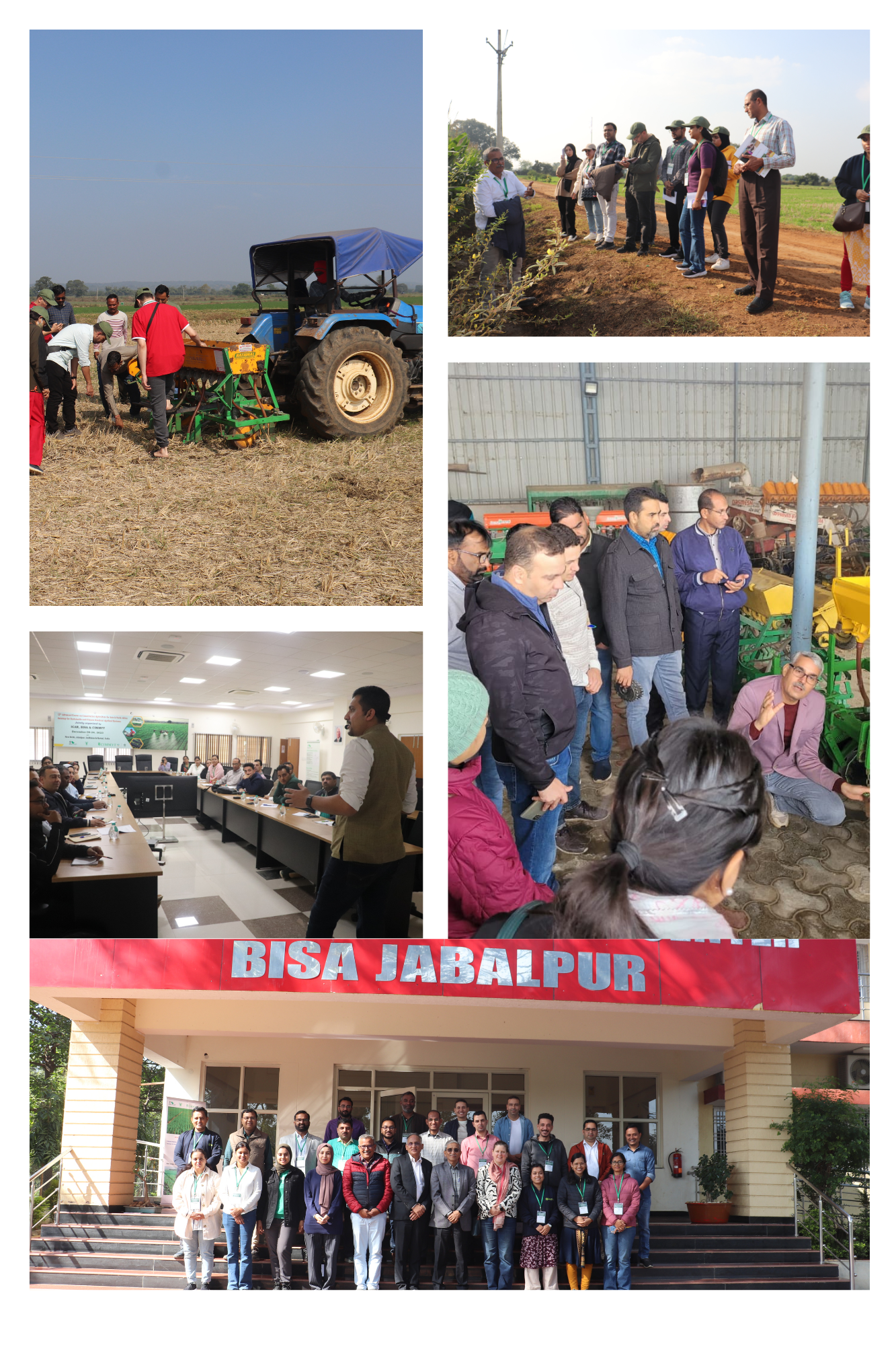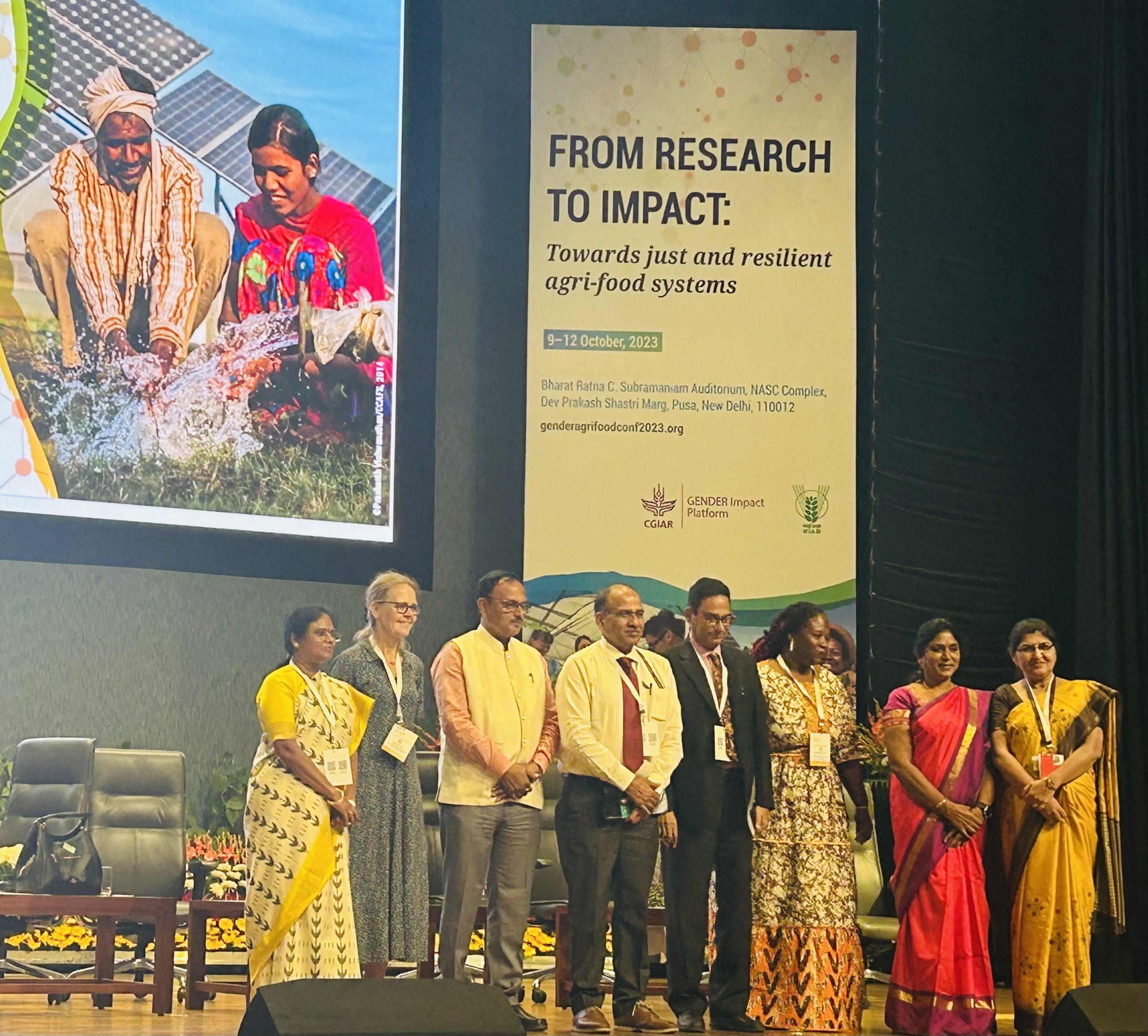CIMMYT-BISA-ICAR organized a two-week training program on conservation agriculture (CA) to demonstrate how CA can be a sustainable farming method and an effective tool for farmers and scientists in both irrigated and rainfed systems to manage agrifood system risks.

The training was jointly conducted by CIMMYT in collaboration with the Borlaug Institute for South Asia (BISA) and the Indian Council of Agricultural Research – Central Soil Salinity Research Institute (ICAR-CSSRI). It was held at the BISA research facilities in Jabalpur and Ludhiana, India, and ICAR-CSSRI in Karnal, India, from 9 December to 24 December 2023.
Creating resilient agrifood systems
Conservation agriculture is an ecosystem approach to agricultural land management based on three interrelated principles: minimal soil disturbance, permanent soil cover, and crop diversification. It helps farmers boost yields, regenerate natural resources, reduce cultivation costs, and create resilient production systems. This helps protect the environment and enhance livelihoods of rural populations, especially in the Global South.
In this region, the rural population depends on natural resources – land, freshwater, and coastal fisheries – for survival. However, the depletion of soil fertility, scarcity of water resources, exacerbated by environmental pollution and climate change-induced stresses, prove challenging to irrigated and dryland agriculture production systems. This puts agrifood systems in South Asia and Africa under tremendous pressure.
Despite the benefits, farmers face significant barriers to adopting CA practices. Lack of knowledge and skills, limited access to appropriate seeds and equipment, lack of policy support, under-developed value chains, and non-acceptance of the fact that CA can yield better results and long-term benefits often prevents farmers from adopting CA practices. Hence, capacity development is vital for the adaptation and scaling of CA-based technologies among smallholder farmers.
To cater to these needs, an Advanced Course on Conservation Agriculture in Asia – a Gateway for Sustainable and Climate Resilient Agrifood Systems was launched in 2010. Later, it was expanded to North Africa. The course links scientific advances and multidisciplinary approaches for upgrading the skills of participants for sustainable intensification and diversification of production systems, enhancing resilience, and conserving natural resources. Since its inception, this training series has directly benefited about 220 researchers, development personnel, and policymakers from 20 countries.
The 12th edition of the training in India saw mid-career researchers and development officers from Morocco, Egypt, Bangladesh, and India participate. Approximately 40% of the attendees were women.
Highlights from the India training program
The inaugural session commenced on 9 December 2023 at the NASC Complex in New Delhi, India. Present at the opening ceremony were chief guest S.K. Chaudhari, deputy director general – Natural Resource Management, ICAR; Arun Joshi, CIMMYT regional representative and managing director of BISA; and Mahesh K Gathala, course coordinator, and Alison Laing, agroecologist from CIMMYT in Bangladesh.
During the welcome address, Joshi informed that CIMMYT and BISA are committed to capacity development of national partners around the world. Chaudhari emphasized the effectiveness in facilitating innovations in CA management. “Under increasing climate variability and change, the need to manage agronomic risks is even more significant and CA is an effective tool for farmers and scientists in irrigated and rainfed systems,” he said.
Participants were introduced to the genesis, background, and objectives of the course by Gathala. Resource persons across diverse disciplines informed the participants about innovative and cutting-edge research in all aspects of CA in both irrigated and dryland cropping systems, including advanced agronomy; mechanization; farm, soil, and water interactions; plant protection, health and crop breeding; climate resilience; farming systems simulation and analysis; agribusiness management; women’s empowerment and gender equity; and agricultural extension and out-scaling. Participants also gained practical knowledge and skills at the BISA research stations where extensive trainings were conducted under the guidance of Ravi Gopal Singh, Raj Kumar, and Lalit Sharma, course coordinators. They organized a series of sessions, along with the hands-on training, at the CA experiment farm in the BISA research facilities. Participants also toured 500 acres of farms at each of the locations. They visited farm facilities such as wheat research trials, molecular laboratory, precision nitrogen nutrition facility, seed processing unit, and farm machinery section.

The group also visited ICAR-CSSRI facilities in Karnal where R.K. Yadav, director, ICAR- CSSRI, welcomed the participants and highlighted the international and national collaboration activities at CSSRI and how long-term experiments on CA are managing and generating science-based evidence to inform policy and capacity building.
Special visits were organized to farm machinery manufacturers in the region to facilitate industry-participant interactions. Participants visited the Landforce factory at Amargarh, a leading manufacturer of all ranges of farm equipment – from seeding to harvesting and processing. This firm is equipped with the latest manufacturing facilities and techniques such as robotic welding, assembling and automated paint. Later, the group visited the National Agroindustry at Ludhiana, a top manufacturer of planters including bed planters, zero till drills, Happy Seeders, pneumatic and precise planters.
Finally, participants were taken to the farmer fields to interact with the farmers and observe the impact first-hand. They met with a progressive farmer group at Karnal who shared their experiences of practicing CA for the last few years. Post these visits and learning sessions, a closing ceremony was organized at CSSRI at Karnal which was chaired by R.K. Yadav and attended by special guests Rajbir Singh, ADG-ICAR and ML Jat, global director RFFS, ICRISAT. “The session on CA machinery was very helpful and carbon credit was an essential part of our learning. We also got an opportunity to exchange our ideas and experiences with researchers from Morocco, Egypt, and Bangladesh. We sincerely thank the organizers for making us confident and technically smart CA personnels,” said a participant from India.
 Capacity development
Capacity development 